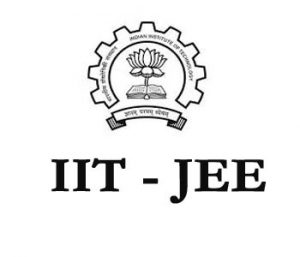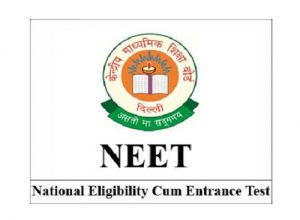Top 5 Toughest Exams in India 2025
by ago 1,543 views0

The top toughest exams in India are challenging to crack but it can happen with the right preparation & strategy. Among all, the UPSC CSE is the most toughest exam in India and lakhs of students appear for it every year. It is also known as the IAS exam. Following this, IIT JEE is considered as the second most India’s toughest exam. The list goes on with GATE, IIM CAT, NEET, and more being the most difficult exams in India.
This blog comprises in-depth information about the top 5 toughest exams in India, their purpose of being conducted, the exam level with other important aspects and the top strategies to prepare for such exams so that these seem less challenging. Dive deep into the blog to know more!
List of Top 5 Toughest Exams in India in 2025
The UPSC CSE, IIT JEE, GATE, IIM CAT, and NEET are considered as the toughest exams in India. Learn about the essential aspects of these exams in India with the detailed description given below:
1. UPSC CSE (Union Public Service Commission Civil Services)

- Conducting Body: Union Public Service Commission (UPSC)
- Exam Level: National Level / All India Level Exam
- Selection Rate: 0.1 to 0.3%
- Category / Purpose: Recruitment to Indian Administrative Service (IAS), Indian Foreign Service (IFS), Indian Police Service (IPS), and many other Central services & posts.
- Official Website: “gov.in”
The UPSC CSE, which is the toughest exam in India, is held only once a year. Two papers are conducted in the examination such as General Studies – 1 and General Studies – 2. The medium / language of both the papers are English & Hindi. The Paper 1 comprises 100 questions whereas the Paper 2 contains 80 questions. The duration of each paper is 2 Hours; both the papers are held for 200 Marks which makes a total of 400 marks for the UPSC CSE Prelims exam. The exam papers which are GS – 1 and GS – 2 comprise only MCQs and the students are required to appear for both the papers.
In order to appear for the Civil Service Examination, the students must have completed a valid degree / equivalent qualification from any State / Central University / University or any other Institution, established by an Act of Parliament.
The syllabus for both general Studies Paper – 1 and general Studies Paper – 2 are different. The topics included in the Paper 1 are more based on general knowledge whereas the Paper 2 syllabus is more related to Comprehension, skills, mental ability, reasoning, etc. Students are required to prepare for both the exam papers as per their syllabus.
*The UPSC CSE exam, which is one of the toughest exams in India, has 3 levels such as Prelims, Mains, and Interview.
2. IIT JEE (Joint Entrance Examination)

- Conducting Body: National Testing Agency (NTA)
- Exam Level: National Level Exam
- Selection Rate: 25 to 30%
- Category / Purpose: Undergraduate Courses in Engineering, Architecture & Planning disciplines.
- Official Website: “nta.ac.in”
The JEE Main is conducted twice a year and it is the 1st level of IIT JEE. The exam is held in 13 languages including English, Hindi, Tamil, Telugu, Urdu, Bengali, Gujarati, Punjabi, Odia, Malayalam, Kannada, Marathi, and Assamese. The IIT JEE Main exam is conducted in Paper 1, paper 2 (A) and Paper 2 (B). The Paper 1 and paper 2 (B) are conducted in Online Computer Based Test (CBT) mode. For Paper 2 (A), the initial 2 parts are conducted in CBT and the Part 3 is held offline. The Paper 1 of the exam consists of 75 questions and is of 100 marks. The Paper 2 (A) contains 77 Questions of total 400 marks; the Paper 2(B) comprises 100 questions of overall 400 marks.
The IIT JEE is considered as the 2nd toughest exam in India. To appear for the JEE Main exam, the students need to qualify 10+2 / PUC / any other equivalent examination in the last 2 years. The authorities have not prescribed any age criteria to apply for the test.
The syllabus for JEE Main Paper 1 includes 3 subjects which are Physics, Chemistry, and Mathematics (PCM). For Paper 2 (A), students are required to prepare as per Mathematics and for the Aptitude test & Drawing test. For Paper 2(B), the aspirants need to study Mathematics and Aptitude Test & Planning.
*It is to be noted that the IIT JEE exam is categorised into 2 levels such as JEE Main and JEE Advanced.
3. GATE (Graduate Aptitude Test in Engineering)

- Conducting Body: Indian Institute of technology (IITs) / Indian Institute of Science (IISc) Bangalore
- Exam Level: All India Level Examination
- Selection Rate: 17%
- Category / Purpose: PG Degree & Direct Doctoral Programs in Engineering, Architecture, Commerce, Science, Arts, and Humanities disciplines. Also for Ph.D in Humanities, Engineering and Science streams.
- Official Website: “iitr.ac.in”
GATE has secured 3rd position on this list of the toughest exams in India. The GATE exam is conducted by any of the IITs or IISc in rotation only once every year. The exam mode is only English and the test is held in the total time of 3 Hours. In the exam, there are a total of 65 questions asked for a total of 100 marks. The exam paper includes Multiple Choice Questions (MCQs), Multiple Select Questions (MSQs), and Numerical Answer Type (NAT) questions..
In accordance with the eligibility criteria of the GATE exam, the aspirants who want to appear for the test should have passed an Undergraduate degree in Science / Technology / Engineering / Commerce / Arts / Architecture / Humanities. Apart from the educational criteria, students are also required to meet other eligibility conditions to apply for GATE.
The students need to know that the GATE syllabus designed by the exam conducting body varies as per the course in which the aspirants are applying through the test. The exam syllabus for courses in which students can take admission through GATE are based on the curriculum of different UG and Master level programs in different disciplines.
4. IIM CAT (Common Admission Test)

- Conducting Body: Indian Institutes of Management (IIMs)
- Exam Level: National Level Examination
- Selection Rate: 2%
- Category / Purpose: Management Programs such as MBA, PGDM, and others.
- Official Website: “ac.in”
The CAT exam, considered as the 4th toughest exam in India, is held only once yearly. CAT exam is an entrance test conducted in English medium / language. It is held for the aspirants who are seeking admission in MBA. PGDM, or other management courses in the IIMs and other participating Institutes across India. CAT is conducted for 120 Minutes in which 40 minutes are allotted to each section; there are 3 sections included in the test. The exam is held for a total of 198 marks and a total of 66 questions comprising MCQs and Non MCQs / TITA are included.
The aspirants of IIM CAT exam are required to achieve 50% aggregate marks in a UG degree to become eligible for the exam. There is a 5% relaxation available for SC, ST, and PwD students in qualifying marks. It is to be noted that students possessing CA / CS / ICWA degrees can also appear for the test.
As per the exam syllabus, there are 3 sections for which students need to prepare, these include VARC – Verbal Ability & Reading Comprehension, DILR – Data Interpretation & Logical Reasoning, and QA – Quantitative Aptitude. There are various topics & sub-topics included in each section on the basis of which questions are included in the CAT exam.
5. NEET (National Eligibility cum Entrance Test)

- Conducting Body: National Testing Agency (NTA)
- Exam Level: All-India Level / National Level Exam
- Selection Rate: 6.5 to 7%
- Category / Purpose: UG Medical Programs such as MBBS, BSMS, BHMS, BAMS, BUMS, and BDS.
- Official Website: “nta.ac.in/NEET”
The NEET exam is conducted once a year by NTA in 13 languages for admission in various undergraduate courses in Medical discipline. The NEET exam is on the 5th position on this list of toughest exams in India. It is held for the duration of 3 Hours and 20 Minutes in which 200 MCQs are included but students need to attempt only 180 questions. The total marks of the NEET UG exam are 720. In the exam, 4 marks are awarded to the students for every correct answer and the negative marking of -1 mark is applicable for wrong answers.
To appear in the NEET entrance exam, students need to qualify at least 10+2 with Physics, Chemistry, Biology / Biotechnology, and English as subjects. Students also need to fulfill the other criteria defined such as age, nationality, etc. in order to be eligible for the test.
As per the NEET syllabus, students are required to prepare for the test according to 3 subjects such as Physics, Chemistry, and Biology. The syllabus is based on the curriculum of 11th and 12th standard. The exam of NEET is conducted in offline Pen and Paper based test mode.
How to Prepare for the Top Toughest Exam in India (Top Tips)
Preparation for any of the India Toughest Exams is challenging; aspirants who are preparing for any of the top entrance exams can follow the tips / strategies in order to ensure that they are going in the right direction and will achieve success.
Below-given are some of the most effective preparation tips students can follow while preparing for any of the toughest exams in India:
1. Know the Syllabus and Exam Patten
First of all, it is important to know the syllabus and exam pattern of the test for which the students are preparing. Knowing the subject-wise syllabus and checking the topics & sub-topics included in every subject will help the students to get an idea of how much time needs to be allotted for every subject.
Along with the exam syllabus, it is important to check the paper pattern in order to get an idea of the format and structure of the exam. Going through the exam pattern will assist in having an understanding of the weightage of subjects and sections in the exam, the mode and medium in which the test is conducted, marking scheme, and other aspects of the test.
2. Gather the Best Resources for Study
It is important for the exam aspirants to initially gather the best possible study resources before starting their preparation for the test. Students can refer to the top textbooks suggested by the exam experts, study material available on the official website of the exam or on other reliable online resources.
The aspirants should also know that the past year question papers are also considered as one of the effective resources to revise the prepared concepts.
3. Create an Effective Preparation Plan
Once the aspirants have clarity about the resources through which they need to prepare for the exam, they must have checked the syllabus according to which study for each subject needs to be done. Only afterwards, an effective preparation plan has to be formed. Making a preparation / study plan is the strategy which allows the students to prepare for the test in the right direction.
While making the preparation strategy, students should make sure that they keep the plan realistic and allot enough time to every subject / section. While making the plan, it is to be made sure that no important topics are left and adequate time is allotted for regular revision of concepts.
4. Be Consistent With Exam Preparation
Making a great study plan for qualifying the toughest exam in India is not enough; the candidates need to stick to the plan and prepare consistently. The key to success in regards to an entrance exam is consistency and dedication. The students are required to follow the study plan throughout their preparation phase. They need to give themselves a deadline by which they will complete the curriculum along with revision.
Being consistent with the exam preparation will help the students to remain motivated and move ahead step-by-step in order to reach their ultimate goal.
5. Solve Previous Year Question Papers and Take Mock Tests
After preparing well for the exam, covering all the topics included in the curriculum, the aspirants are advised to download the old question papers. After accessing the previous year papers of the test, students are required to start practicing with them. Solving the older exam papers will help the students to analyse how well they have prepared and where the improvement is needed.
Apart from solving the past year papers of the exam, it is also advised to take the mock tests of the exam. Taking the mock test will provide a realistic experience to the students and help them understand the test format clearly. It will also aid to enhance their skills such as time management, problem-solving, etc. The accuracy of answering questions also gets increased by solving the previous year exam papers and practicing with mock tests.
Wrap-Up!
It is to be admitted that the toughest exam in India, ranging from UPSC CSE to NEET requires extensive strategic preparation, hard work, commitment, and dedication, guidance. Students can follow the preparation tips mentioned in this article to get assistance during their preparation of a toughest exam in India.
While preparing with utmost dedication for the most challenging exams conducted at the All India Level, students need to ensure that they are physically and mentally well. Moreover, they must remain confident in order to achieve what they desire in terms of the exam results.
